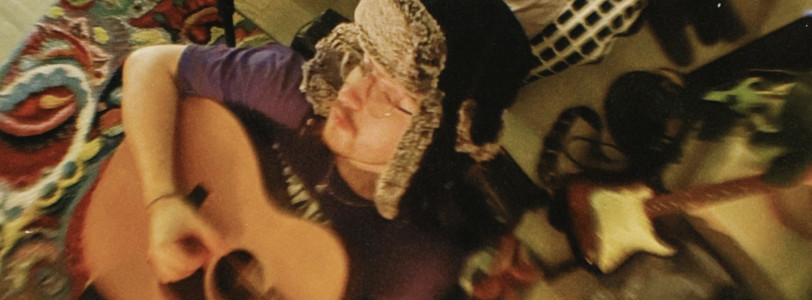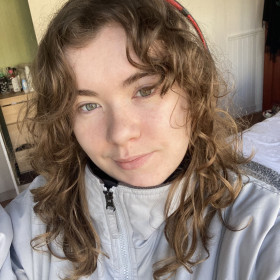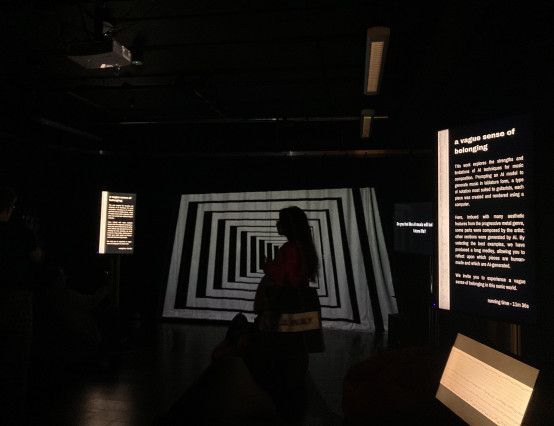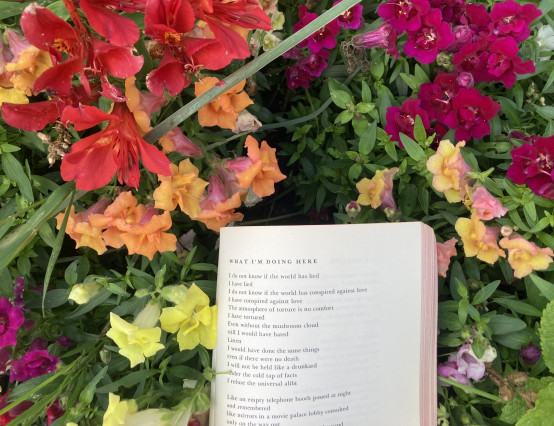Cosy, quiet and ambient are the words which spring to mind when I think of Kieran Barber’s bedroom studio. It is in this room, here in East London, that ‘Backstreets’ records, produces and mixes music – his stage name is inspired by Bruce Springsteen’s 1975 track.
Kieran is currently in the midst of releasing his second solo EP, centring on themes of loss and hope. It has been made in collaboration with those closest to him. Alongside his own music, he’s recorded and mixed for other up and coming artists such as CROOKS INC.
As a young musician at the beginning of his career, he has found numerous challenges along the way. Most prominently, trying to make a living as a creative person in the capital city. Living here comes with “its own set of challenges” he tells me, “it’s a trap really. You get sold an idea of connection and prosperity, but in reality, you’re constantly worried about money.” There’s also a lack of support, despite the government investing the majority of its spending on arts and culture directly into London. Many young artists have to find part-time or full-time work alongside their true passions, which can quickly become draining and disorienting. This makes it particularly challenging for young people to break into the creative industry, especially if they don’t have much financial support.
If you don’t want to work unnecessarily hard, meet a load of artists who only got a record deal because their dad knows someone or constantly worry about your bank balance, maybe London is not the most ideal option for you.
But it’s not been all bad – Kieran describes the connections he’s made with other creatives as invaluable. He would have never had the chance to collaborate with the amazing musicians he’s met through university if he stayed back home in Yorkshire.
Overall, making music is an all-encompassing feeling for Backstreets - he tells me that “I don’t feel like I’m doing life properly if I’m not making music” and that there is so much freedom in creation. Kieran describes himself as an ‘audio-nerd’ and tells me that there are a million ways to record a piano and you’ll never know all of them; it’s a never-ending pursuit to find the best and freshest sound.
Since Kieran has a background in computer science, his perspective on AI and the creative industry is not only intriguing, but well informed.
The young artist feels that, since art is the manifestation of human experience, AI (consisting of complicated scripts and algorithms) can’t truly replicate it. He feels that art is innately human, so the crossover between AI and art feels wrong. Kieran also disagrees that AI could be useful to creatives, “I don’t see a way that it could improve the creative experience. Although it could be used for writer’s block, it’s part of the artistic experience to work through it and find new inspirations.
Despite these criticisms, the prospect that AI will eventually be able to produce good music and undertake the mixing/mastering process is a big concern.
In capitalist society, where money is placed at the heart of everything we do, artists and consumers have every right to be concerned about big corporations opting for AI technologies above ‘complicated’ human wants and needs in the future. However, this prospective future is already here.
AI is being used by streaming platforms and is becoming more widespread. An article for the Financial Times by Anna Nicolaou states that AI is already “rapidly reshaping the music industry”, particularly due to software that can mimic the voice of any artist. You may have seen this already, for example, through videos on social media which show the likes of US President Joe Biden singing his heart out to numerous ballads.
Nicolaou highlights the concerns of companies such as Universal Music, who sent an open letter to streaming platforms focused on copyright infringement. They argue against AI models training itself on copyrighted music, and that artists and labels should receive a percentage of the money made on these AI tracks.
Stuart Darke for Arts Professional Magazine writes that AI could erode employment opportunities for those who compose music for content creators, video games, corporate advertisements, film, TV and more.
AI is also being used in the audio-engineering process. Soundcloud has a mastering tool called ‘Dolby’ which they insure can master your track “instantly” – their website states that this technology “critically listens to your music similar to the way an engineer would.” Kieran believes that this tool isn’t amazing, but it has the potential to be. Furthermore, if somebody could have a mix done in minutes at a small price, why find and communicate with a mix engineer for weeks on end? It is bleak to think that this same process undertaken by humans could become a niche in the future.
It comes with some relief that these forms of AI are not perfect yet or widely accessible, but there are still significant concerns that technologies could advance to unprecedented levels, mimicking human emotion with ease like some sort of sci-fi novel.
This will mostly affect young musicians, not those who have already established a successful career. Kieran believes that the threat of AI is enough to make people feel deterred from trying to access the music industry, opting for other ‘safer’ careers. After all, there are already so many barriers; making connections and networking is key, which is already tiresome. Those who are from marginalized backgrounds experience further obstacles.
The Black Lives in Music study has shown the racism and discrimination faced by Black musicians in the UK is significant. The Guardian’s article on the study reveals that disparities and inequalities within the music industry are rife, with many participants experiencing direct or indirect racism, microaggressions and type-casting. In addition to this, there is a large pay gap between black and white creators in the same roles.
Women, LGBTQ+, working class and disabled musicians also remain underrepresented and it is clear that things need to change. Although, as AI enters the mix, those who already have to fight for their place in the music industry may begin to feel alienated even further and deterred from trying in the first place.
Many seem to agree that AI could never truly replicate human spirit. After all, it is the culmination of emotion, life experiences and passion that draws us to creating and consuming music. We persist in playing instruments until we are perfect, pour all-consuming feelings into lyrics, dance and sing to, or ‘stan’ our favourite artists and performers. Perhaps we cry in our bedrooms listening to a song that’s got us through a tough time, relating to and feeling everything that is expressed through the melodies.
Making music will always be a very human experience. Kieran states, “when you’re in the studio with other musicians, everyone has a common goal of finding the coolest sounds. It’s a kind of genuineness that I haven’t found anywhere else.” This is the sort of thing that could never be replicated by computers.
Yet, as profit is usually always placed over human needs, the incorporation of AI in the music industry is unsettling. As the technology improves, young creatives will continue to feel under threat. It’s therefore important for our politicians and governments to ensure the protection of human creation and begin to implement legislation on Artificial Intelligence.
Until this occurs, young musicians, such as Kieran, will continue to live in a state of unease regarding their future.
You can find Backstreets on:
Instagram: @backstreetsmusic
Spotify:https://open.spotify.com/artist/3rcKwJ0LH7CayJQe6LGGsv









0 Comments